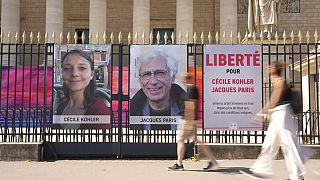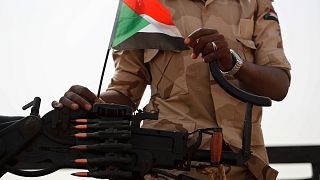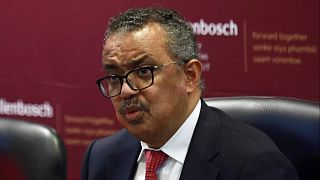Sudan
Discussions between military leaders and protest leaders in Sudan on a transfer of power to a civilian authority will continue, announced Saturday evening a leader of the Alliance for Freedom and Change (ALC).
“We have clarified our main request, which is the transfer of power to civilian authorities,” Siddiq Youssef, an LAC official, told public television after a meeting with the ruling Transitional Military Council.
“This is the main demand of the people’s movement (…) We have agreed to continue negotiations to reach a solution that satisfies both parties, so that the transfer of power can take place peacefully,” Youssef said. The LAC brings together several political parties and civil society groups that are leading the protest.
The Saturday evening meeting took place on the eve of the movement’s announcement that it would form a “Civil Council for the Affairs of the Country” to replace the Transitional Military Council, which has been in power since the overthrow of President Omar al-Bashir on 11 April last under street pressure.
It brought together five representatives of the Alliance and members of the Military Council “to discuss the transfer of power to a civilian authority”, Ahmed al-Rabia, an official of the Association of Sudanese Professionals, a group at the forefront of the protest that has been taking place in Sudan since 19 December, told AFP.
If the military leaders refuse to hand over power, the protest leaders will announce a “Sovereign Civil Council” on Sunday, he explained before Saturday’s meeting.
“If they wish to negotiate, then the announcement scheduled for tomorrow could be postponed,” he added.
Mr. Youssef did not specify whether the project to announce a “Civil Council” on Sunday was still on the agenda.
Timetable for the transfer of power
“We demand (from the Military Council) a timetable for the transfer of power, so that things do not drag on,” Rabia said.
He further revealed that since the overthrow of Omar al-Bashir, the Military Council had held two rounds of discussions with the leaders of the protest.
“During these talks, we felt that the Military Council did not want to return to power,” Ahmed al-Rabia said, adding that increasing pressure from the street and the international community should push the Military Council to return to power within “two to three weeks.
On Friday, the SPA announced that “the names of the members of a Civil Council in charge of the country’s affairs will be announced at a press conference on Sunday at 19:00 local time (17:00 GMT)” in front of the army headquarters, where thousands of Sudanese have been gathering in the centre of the capital Khartoum for two weeks.
According to officials, this Civil Council will be responsible for forming a transitional government with a four-year mandate followed by elections.
“All we hope is that the country will be governed by civilians and rid of military power,” said a demonstrator Saturday evening outside army headquarters where many Sudanese camp, dancing and singing revolutionary tunes
After coming to power by a coup d‘état supported by the Islamists on 30 June 1989, Omar al-Bashir iron-handedly led a country in rebellion in several regions and is accused of human rights violations.
Overthrown on April 11 by the army, he was arrested and is currently being held in a Khartoum prison.
Difficult task
Galvanized by the concessions obtained with the departure of Mr. Bashir and other military leaders, the demonstrators appear more determined than ever and maintain pressure on the Transitional Military Council.
But on the constitution of a Civil Council, the leaders of the protest are faced with a “difficult” task, stresses Sudanese journalist Khalid Tijani.
“If they are not ready with names, it will send a negative signal, and will not be in the interest of the revolution,” explains the editor of the business weekly Elaff.
On the judicial side, the new Sudanese Prosecutor General lifted on Saturday the immunity of several members of the security services suspected of being involved in the death of a detainee, arrested because of his links to the demonstrations that have been raging in the country for four months, according to the official agency Suna.
The United States, which keeps Sudan on its blacklist of “States supporting terrorism”, has called on military leaders to make a transition in line with Sudanese wishes.
The head of the State Department in charge of East Africa, Makila James, “will travel to Sudan this weekend,” a senior American official announced on Thursday.













01:49
Sudanese refugees in Chad face deepening humanitarian crisis
01:41
UN warns of looming famine in Sudan, Gaza and 3 other global hunger hotspots
01:49
UN warns of impact Sudan's humanitarian crisis is having on Chad
Go to video
Sudan: Hamdok not convinced by the new Prime Minister
01:00
New cholera outbreak in Sudan kills 172 people in a week
01:06
China's Wang Yi hosts Latin American, Sudanese counterparts in Beijing